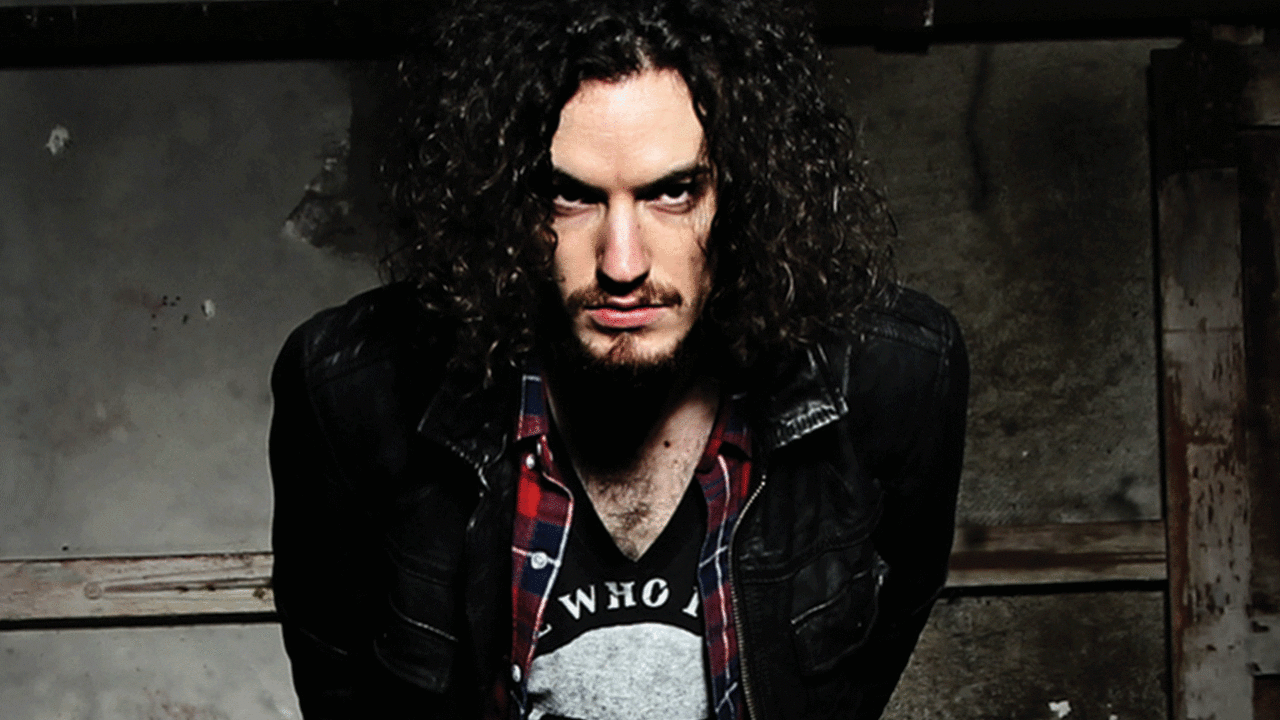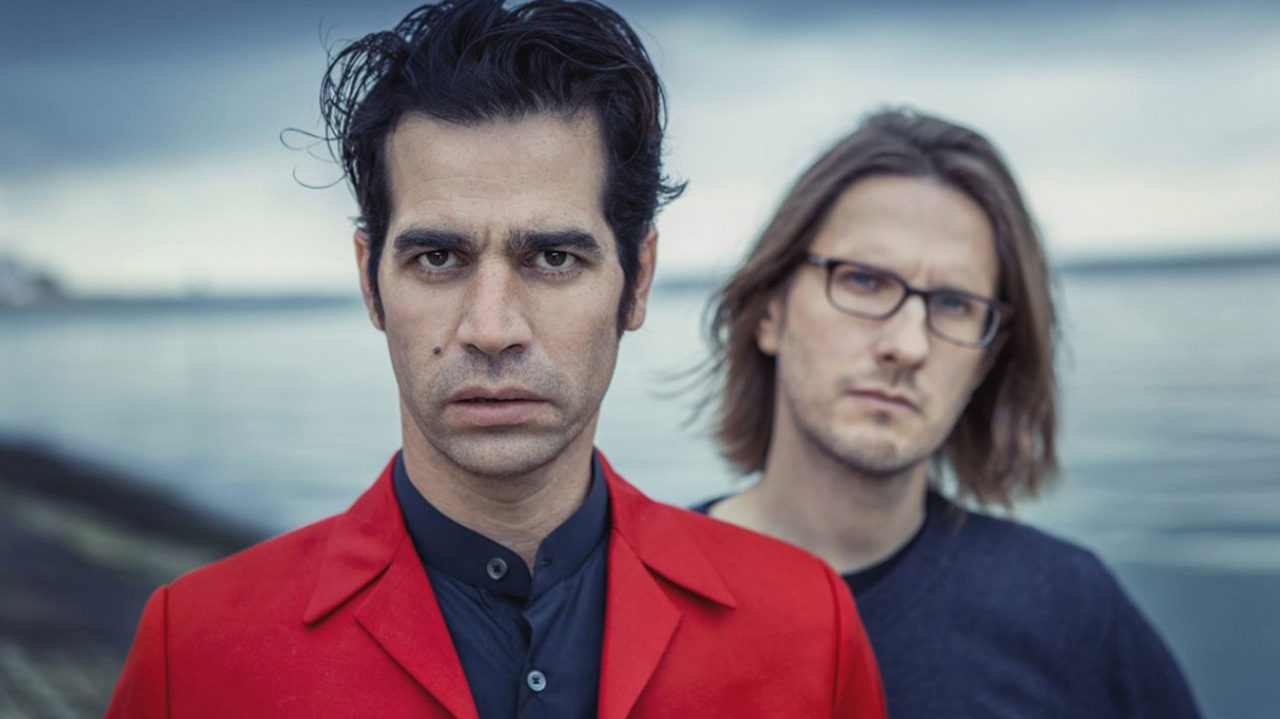The Trial Of Oli Brown
Former Brit-blues wonderboy Oli Brown stands accused of betraying the scene with his new hard rock trio RavenEye. Will the defendant please rise…

Select the newsletters you’d like to receive. Then, add your email to sign up.
You are now subscribed
Your newsletter sign-up was successful
Want to add more newsletters?

Every Friday
Louder
Louder’s weekly newsletter is jam-packed with the team’s personal highlights from the last seven days, including features, breaking news, reviews and tons of juicy exclusives from the world of alternative music.

Every Friday
Classic Rock
The Classic Rock newsletter is an essential read for the discerning rock fan. Every week we bring you the news, reviews and the very best features and interviews from our extensive archive. Written by rock fans for rock fans.

Every Friday
Metal Hammer
For the last four decades Metal Hammer has been the world’s greatest metal magazine. Created by metalheads for metalheads, ‘Hammer takes you behind the scenes, closer to the action, and nearer to the bands that you love the most.

Every Friday
Prog
The Prog newsletter brings you the very best of Prog Magazine and our website, every Friday. We'll deliver you the very latest news from the Prog universe, informative features and archive material from Prog’s impressive vault.
Can this be Oli Brown we see before us?
Back in 2008, when this writer first interviewed the Norfolk bandleader around the release of debut album Open Road, he was a cherubic blues cub in a work experience suit. Fast-forward seven years and Brown is unrecognisable: a shock-haired, skull-shirted, Beelzebub-bearded wildman who’d make you hit the central locking if he approached at the lights. “Yeah,” he nods. “Less of the suits, I guess. And I don’t straighten my hair any more. I needed a change. With the music as well.”
No kidding. Turns out that Brown’s appearance is just the tip of the transformation. If you’ve heard RavenEye’s debut EP, Breaking Out, or caught their European support slots under Slash, you’ll know this new trio are harder, heavier and hairier than the buoyant blues-rock that established Brown as the darling of the Ruf Records roster. “I really wanted to shake things up,” he says. “Get out there and sing differently, perform differently. I started out loving heavy music as well. I love rock as much as I love blues. I was a big Chris Cornell fan and I was obsessed with Audioslave. I remember losing my mind when that first single, Cochise, came out.
“RavenEye is more riff-driven,” he continues. “It’s heavier rock. I’ve made it more about the songs, rather than too many lead solos. There’s a lot more fuzz and bass effects going on. The live show is different as well. It’s more about the energy and the atmosphere. We want to shut down those inhibitions, have a good time, get loud. It gives us an excuse to jump around.”
And yet, in an industry where artists are prodded for more of the same, the bandleader admits he’s often felt on trial since the first RavenEye material took form in March 2014. “There was a bit of an uproar about the idea of making this band. More negativity than positivity. I don’t want to mention any names, but it was people that had supported me from the start. It was frustrating. It was disappointing to hear it from people that I expected some kind words or well-wishes from.”
Let’s hear the first allegation, then. The defendant is accused of falling out of love with the blues. How does he plead? “No, that’s ludicrous,” replies Brown. “I’m 26 years old, and I’ve been really involved in the blues for 10 years. I think it’s pretty natural to want to explore other outlets. That’s just a foolish statement to make. It’s ridiculous. I have creative ideas – and someone’s telling me I’m wrong to explore them? My music has always mixed rock and blues. I love the blues, still, and loads of rock music is influenced by blues, so the blues is still underlined there and it always will be. I’ll always be a blues musician in my heart.
“You can definitely still hear elements of the blues in RavenEye,” he continues, “because my playing is blues-led. When the soloing comes into play, I wear my influences on my sleeve. Like, Hendrix has been at play in some of the Octavia kind of sounds. There’s some Cream stuff, and Led Zeppelin we’ve been referencing in terms of crafting some of the riffs.”
Sign up below to get the latest from Classic Rock, plus exclusive special offers, direct to your inbox!
Allegation number two. The defendant is accused of turning his back on the scene that nurtured him. Guilty? “No,” Brown shoots back. “I understand that initial kneejerk reaction, but I’m still doing the blues gigs as Oli Brown and the rock gigs as RavenEye. Nothing’s changed. It’s all intertwining. Fans of RavenEye have come to check out the Oli Brown shows, which is beautiful. Then there are other people who have said, ‘We’re glad you’re still doing blues, and we don’t want to see RavenEye because it looks too heavy.’ That’s great, too. I want to be able to offer things to different audiences. Y’know, some people still get confused, and they’ll ask me, ‘Can you play Roxanne?’ at the RavenEye shows. But I’m keeping the two shows completely separate. I don’t want to do this music under Oli Brown, because then you’re gonna come to a gig thinking you’re gonna hear blues, but it’ll be hard rock – and that’s just gonna be annoying.
“One thing that’s really nice about having RavenEye,” he continues, “is that as a solo artist, I can go back to more bluesy roots. Before, I was trying to push out further from the blues sound, trying to get a heavier sound and get into more rockier elements. Now, with the blues shows, I can go back to my more traditional roots and bring back older influences, play more 12-bars, tell stories. It’s different sides to my personality. With the blues thing, I love it because it’s like a living-room feeling, where we can talk and have a laugh. I really enjoy that. Whereas the rock thing, I feel, is more intense and there’s a different kind of energy, there’s more fire. So it’s funny – if anything, I’ve become more blues-oriented on the Oli Brown music than I was before.”
Finally, we come to the most heinous allegation. The defendant is accused of creating RavenEye to cynically court the rock-scene dollar. “That’s not even realistic,” laughs Brown. “I’m not looking at it for that. I believe in this band. I believe it can get somewhere. But it’s definitely not about commercial success. It’s a new band, and it’s low budget, so we all sleep in the van. It’s the furthest from luxurious right now.
“And, y’know, it was difficult leaving Ruf Records,” he stresses. “They pushed me as an artist, which was incredible, and that really kind of gave me a stable ground to tour around Europe. But I couldn’t supply the thing to Ruf that would have been good enough to put out as a blues album. I don’t think the EP is what Ruf would have been interested in. The band is not a blues band. We don’t want it to be represented in that way. But we left it on a good note. He’s a good person, Tom Ruf. And without him, I wouldn’t have made the ground that I have throughout Europe.”
No further questions. As the prosecution rests, the jury returns its verdict, clearing Brown of all charges and slapping a gagging order on his detractors. “Y’know, I’ve been told by numerous people that this band is a mistake,” considers the bandleader in his summing-up speech. “That doing RavenEye is an awful idea, and that I shouldn’t be wasting my time with it. That I should be focusing on the blues music, because that’s what I’ve been involved with, and I’m disrespecting a lot of people that helped build that up.
“But did it get me down?” he considers. “No, not in the slightest. If anything, it kind of fuelled my fire. Y’know, like, ‘Screw you, I can do this and I believe in this.’ When I have my mind set on something, I’m 100 per cent. I’m either gonna do it, or the idea is not worth doing at all. I don’t like doing things half-assed. So I was like, ‘No, screw it, I don’t care.’ In music, you’ve got to follow where your heart is leading you.”
Breaking Out is out now via Rook Recordings.
Henry Yates has been a freelance journalist since 2002 and written about music for titles including The Guardian, The Telegraph, NME, Classic Rock, Guitarist, Total Guitar and Metal Hammer. He is the author of Walter Trout's official biography, Rescued From Reality, a music pundit on Times Radio and BBC TV, and an interviewer who has spoken to Brian May, Jimmy Page, Ozzy Osbourne, Ronnie Wood, Dave Grohl, Marilyn Manson, Kiefer Sutherland and many more.

